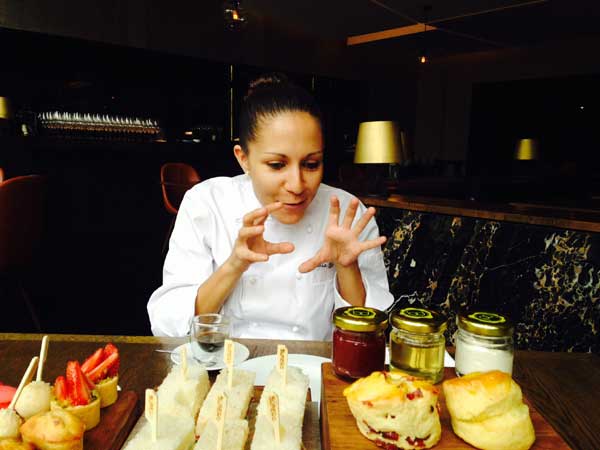 |
|
Whether creating a new afternoon-tea menu for her restaurant, or in-flight meals for an airline, chef Laia Pons Gonzalez has proved to be adaptable. [Photo by Mike Peters / China Daily]
|
Expat Lives | Laia Pons Gonzalez
A few years in China has made a Spanish chef as flexible as a gymnast. Mike Peters discovers.
When Laia Pons Gonzalez came to China in 2007 as a guru of Spanish cuisine, she probably didn't foresee hauling live birds up a mountain in the Tibet autonomous region.
But if Pons, 34, wasn't adaptable before, seven years in China has made her as flexible as a gymnast.
"I went to Lhasa to consult for a boutique hotel there that wanted to serve authentic Spanish food," she says with a wide smile. "The first day, we got the ducks and chickens I needed at the market in town for the dishes I wanted to prepare. But when we got to the hotel, which was still doing the final construction, there was no place to keep them."
Fortunately, the hotel swimming pool had not yet been filled with water, and so the birds had a temporary refuge, she recalls.
Adaptability - in life and in the kitchen - has been a valuable component of her stay in China.
One of the few female chefs in Beijing, she currently helms the restaurant kitchen at Sureno in the Opposite House hotel. There, she recently had the challenge of adapting her Mediterranean menus for the in-flight service aboard Dragon Air. Serving thousands of meals a day instead of several dozens requires more than ordering a lot of extra ingredients.
"The restaurant environment provides more freedom," she says. "We can adapt quickly to what's available that day in the market, and we can take some time making the presentation of each plate just right."
